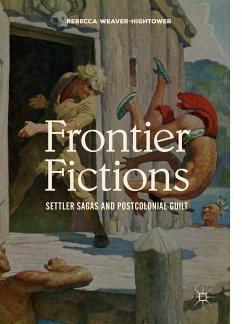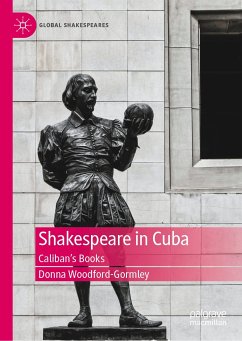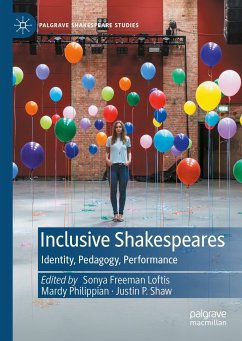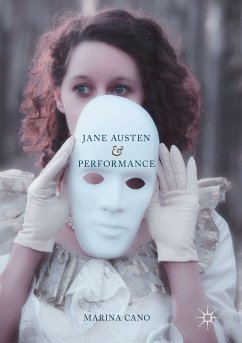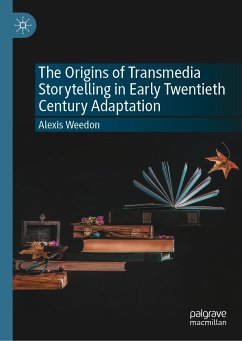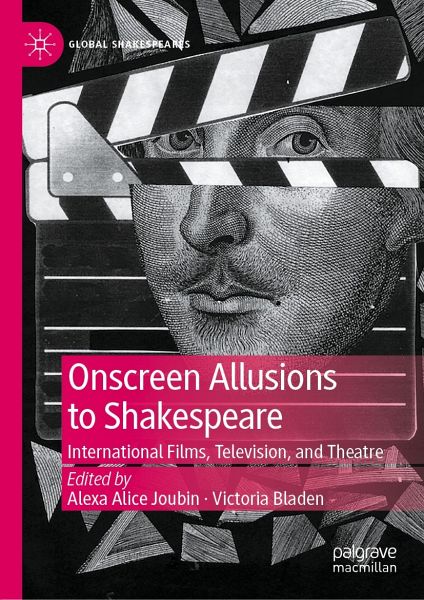
Onscreen Allusions to Shakespeare (eBook, PDF)
International Films, Television, and Theatre
Redaktion: Joubin, Alexa Alice; Bladen, Victoria
Versandkostenfrei!
Sofort per Download lieferbar
104,95 €
inkl. MwSt.
Weitere Ausgaben:

PAYBACK Punkte
52 °P sammeln!
Allusions to Shakespeare haunt our contemporary culture in a myriad of ways, whether through brief references or sustained intertextual engagements. Shakespeare's plays and motifs have been appropriated in fragmentary forms onstage and onscreen since motion pictures were invented in 1893. This collection of essays extends beyond a US-UK axis to bring together an international group of scholars to explore Shakespearean appropriations in unexpected contexts in lesser-known films and television shows in India, Brazil, Russia, France, Australia, South Africa, East-Central Europe and Italy, with re...
Allusions to Shakespeare haunt our contemporary culture in a myriad of ways, whether through brief references or sustained intertextual engagements. Shakespeare's plays and motifs have been appropriated in fragmentary forms onstage and onscreen since motion pictures were invented in 1893. This collection of essays extends beyond a US-UK axis to bring together an international group of scholars to explore Shakespearean appropriations in unexpected contexts in lesser-known films and television shows in India, Brazil, Russia, France, Australia, South Africa, East-Central Europe and Italy, with reference to some filmed stage works.
Dieser Download kann aus rechtlichen Gründen nur mit Rechnungsadresse in A, B, BG, CY, CZ, D, DK, EW, E, FIN, F, GR, HR, H, IRL, I, LT, L, LR, M, NL, PL, P, R, S, SLO, SK ausgeliefert werden.




